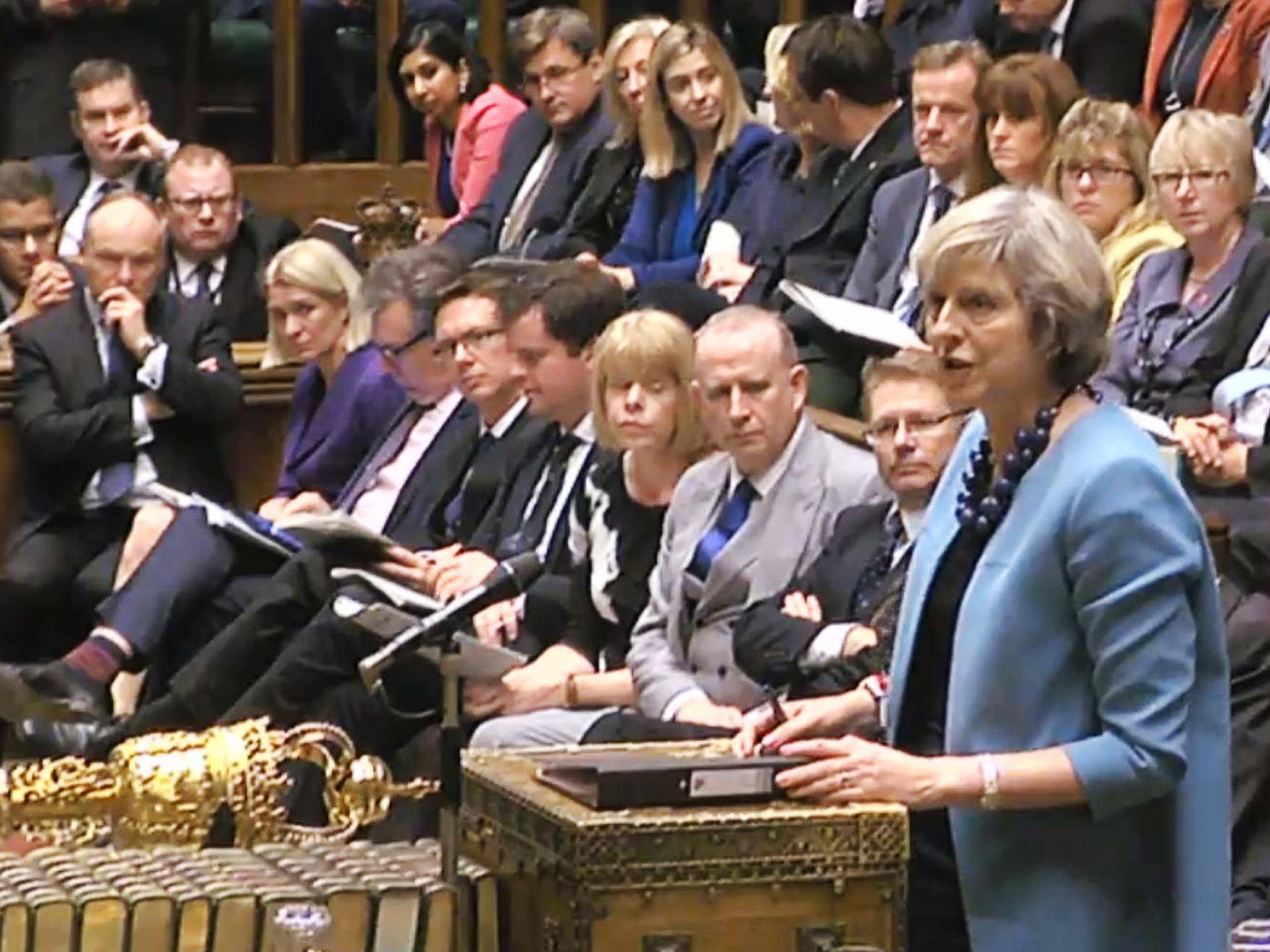Brexit: Why has Theresa May suddenly agreed to reveal her EU withdrawal plans?
Here’s what you need to know as House of Commons prepares to approve motion forcing PM to unveil strategy

The House of Commons will today approve a motion with cross-party support for the Government to publish its long-awaited “plan for leaving the EU” before it invokes Article 50 of the Lisbon Treaty to kick-start two years of Brexit negotiations with the EU. In an apparent U-turn, Theresa May, who has been keeping her cards very close to her chest, agreed to disclose her Brexit plan.
Q: Why did Theresa May back down and accept Labour’s Commons motion?
A: The Government faced an embarrassing defeat after Labour tabled a clever, rather bland motion calling for proper parliamentary scrutiny of the Brexit process, while respecting the people’s decision to leave the EU and saying that the plan for leaving should not include material that could damage the UK in the negotiations. This attracted the support of pro-European Conservatives, who have become increasingly impatient with Mrs May’s refusal to spell out what Brexit really means. They claimed between 20 and 40 Tory MPs were ready to support Labour in today’s vote. Tory whips insisted the figure was nearer 12, but that still left the Government facing defeat. Rather than oppose the Opposition motion, the Government took the heat out of the vote by accepting it.
Q: How significant is Mrs May’s retreat?
A: Not as significant as the headlines suggest. She has not said how detailed her plan will be. It is unlikely to be a Green or White Paper and so may be rather thin and vague. Mrs May has offered something she would have had to do at some point --saying a little more about her negotiating aims, which she always intended to do when she invoked Article 50.
Q: What will be in the plan?
A: It will probably be a "motherhood and apple pie" statement repeating May's desire for the "best possible access" to the EU market while gaining "control" over EU migration. It is likely to say the UK must be free from the jurisdiction of the European Court of Justice, as the Prime Minister made that a non-negotiable “red line” at the Tory conference in October. But the plan might not go into whether the UK will remain in the EU single market or customs union in any detail, or tackle the sensitive issue of whether Britain might pay into EU coffers for market access. Ministers could argue that these matters should be left for the negotiations.
Q: Was it a victory for Labour to force Mrs May’s hand?
A: Yes, and a rare one too, although it may look more like a tactical rather than strategic victory when we finally see the plan. But Mrs May’s retreat is a sign that the Opposition has sharpened up its act since the appointment of Sir Keir Starmer as shadow Brexit Secretary.
Q: Was that the end of the Parliamentary game-playing?
A: No. The Government added an amendment to Labour’s motion saying Article 50 should be invoked by 31 March, Mrs May’s deadline. This was a clever attempt to challenge Labour not to block Article 50 and lock it into the Government’s strategy. Labour does not want to be seen to be thwarting the June referendum decision and so has accepted the Government’s amendment.
Supreme Court Brexit Challenge
Show all 13Q: Does that mean that the Commons will approve Article 50 in today's vote?
A: No. The Opposition motion is not binding. In any case, the question of whether ministers need parliamentary approval to trigger Article 50 is being settled in this week’s case in the Supreme Court.
Q: So is everyone at Westminster happy now?
A: Not quite. Labour is demanding that Mrs May’s plan is published in January so that Parliament has enough time to scrutinise it. But ministers may wait until closer to their March 31 deadline, not least because the Supreme Court will decide whether they need to push through legislation to trigger Article 50. Pro-EU Conservatives who had planned to rebel today are starting to smell a rat; they are calling for a detailed plan or White Paper, but are likely to be disappointed. And the Scottish National Party has tabled another amendment saying that Article 50 should also be approved by the devolved administrations in Scotland, Wales and Northern Ireland – which is opposed by the UK Government as it would create another stumbling block to starting the Brexit talks.
Subscribe to Independent Premium to bookmark this article
Want to bookmark your favourite articles and stories to read or reference later? Start your Independent Premium subscription today.

Join our commenting forum
Join thought-provoking conversations, follow other Independent readers and see their replies